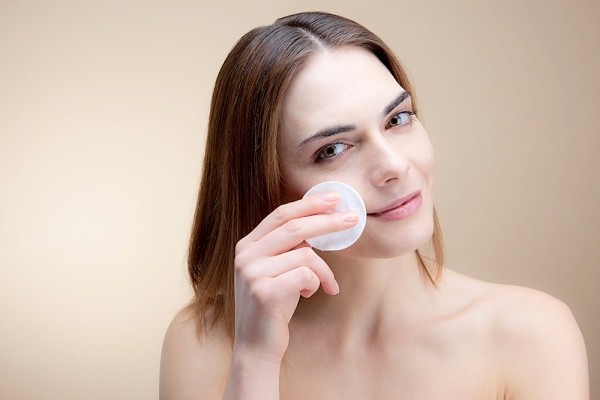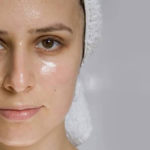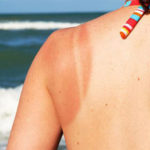Common Factors Causing Oily Acne-Prone Skin
– Enlarged pores cause the skin to produce more sebum than normal. This makes it easier for dirt to stick to the skin, giving bacteria more opportunities to attack.
– Hormonal imbalance: When hormone levels fluctuate, hormones like estrogen and androgen increase, stimulating the sebaceous glands and leading to the formation of acne such as blackheads on the nose, cystic acne on the chin, and cystic acne on the nose.

Enlarged pores cause the skin to produce more sebum than normal. This makes it easier for dirt to stick to the skin, giving bacteria more opportunities to attack.
– Improper skincare: Not cleansing the skin properly and overusing cosmetics can weaken the skin, damage its protective barrier, and make it more sensitive and prone to acne.
How to Care for Oily Skin
Choose the Right Skincare Products
Opt for gel-based cleansers instead of cream-based ones (which are more suitable for dry winter weather). Also, use a toner daily to tighten the skin. Remember to choose products with a low alcohol content, as alcohol can irritate the skin.
Select foods that reduce sebum production in the body, such as those rich in fiber (oranges, grapefruit, leafy greens, whole-wheat bread, and corn).
Exfoliate regularly and apply moisturizer every night. Exfoliating helps the skin breathe, preventing pores from becoming clogged and giving acne no chance to survive. Even oily skin needs to be moisturized, so that it receives enough hydration overnight and you wake up with a smoother complexion.

Even oily skin needs to be moisturized, so that it receives enough hydration overnight and you wake up with a smoother complexion.
– Exfoliate Twice a Week
To keep oily skin from becoming greasy and breaking out during the summer, make it a habit to exfoliate once or twice a week. Dead skin cells and excess dirt can clog pores and trigger the skin to produce more oil.
– Use a Moisturizer
Choose a moisturizer that suits your skin type, keeping it hydrated, smooth, and preventing excess oil production. Also, opt for a gel-based moisturizer and apply sparingly to avoid clogging your skin.
Avoid Overusing Oil-Absorbing Sheets
While oil-absorbing sheets can be helpful, don’t overdo it. Your skin needs a layer of oil to maintain its moisture balance. Blotting too often can dry out your skin, depriving it of oil and prompting your body to produce even more oil to compensate.
Limit yourself to blotting once every three to four hours. Also, when using blotting sheets, gently pat around your face, especially the T-zone around your nose, but avoid rubbing vigorously, as this can irritate your skin.





































